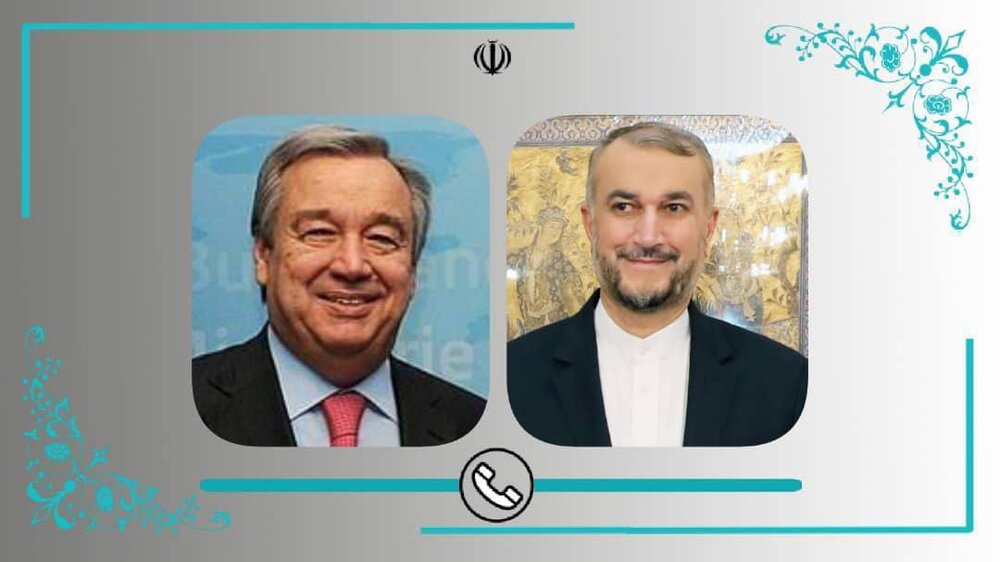Iran criticizes UN for failing to get Israel to sign NPT
Amir Abdollahian says it is essential to resolve all “artificial and politically-motivated Safeguards” issues

TEHRAN - The Nuclear Non-Proliferation Treaty (NPT) Review Conference has come under fire from Iran's Foreign Minister Hossein Amir Abdollahian for failing to force the Israeli regime to ratify the agreement.
On August 1, the Tenth Review Conference of the Parties to the NPT got underway and was planned to end on Friday.
In a phone call with UN Secretary-General Antonio Guterres on Thursday, Amir Abdollahian bemoaned that the NPT conference's President-designate Gustavo Zlauvinen had not pushed the Israeli regime to sign the treaty.
The Iranian foreign minister said Zlauvinen had put away all of the previous conferences' successes by failing to criticize the Tel Aviv regime, adding, “This is not acceptable by us at all.”
In its ratifications in 1995, 2000, and 2010, the UN had pressed Israel to sign the NPT and put its nuclear program under the Safeguards agreement.
With 200–400 nuclear warheads in its arsenal and a deliberate strategy of ambiguity regarding its nuclear weapons development, Israel is the only owner of non-conventional weapons in West Asia.
However, the regime has steadfastly refused to ratify the NPT or allow the International Atomic Energy Agency (IAEA) to investigate its military nuclear installations.
The U.S. and European countries, which are harshly critical of Iran's peaceful nuclear energy program, have expressed support for Israel, and this has emboldened the Tel Aviv regime to further up its nuclear operations.
Iran studying U.S. response
Regarding the ongoing negotiations for the potential lifting of U.S. sanctions against Iran within the framework of the nuclear talks in Vienna, Amir Abdollahian said Iran is studying Washington’s response to a European Union proposal that is intended to break the talks' present deadlock.
The United States responded to the EU’s proposed nuclear text on Wednesday, and Iran is studying it.
“My colleagues are currently working to examine the U.S. response,” the foreign minister told the UN chief who initiated the phone talks.
“We possess the serious and real will for conclusion of a strong and sustainable agreement, and have displayed this will in practice,” he underscored.
Iran responded to the new EU proposal on August 15, one week after it was released.
Elsewhere in his talks with the UN secretary general, Amir Abdollahian said Iran had reminded all negotiating partners that it is “highly essential” to resolve all “artificial and politically-motivated Safeguards” issues pertaining to Iran’s nuclear program.
He added Iran has shown “strong, serious and real will for” reviving the JCPOA, and “we have shown this in practice.”
UN chief thanks Iran for its constructive approach toward Vienna talks
For his part, the UN chief promised to address the Islamic Republic's worries over the Israeli regime's failure to sign the NPT.
Regarding the Vienna talks, Gutters thanked the Islamic Republic for its constructive efforts and stances and expressed optimism that the negotiations would result in a favorable outcome.
The 2015 nuclear deal was reached in July 2015 between Iran and the five permanent members of the UN Security Council, Germany and the European Union. However, in May 2018, the U.S. unilaterally and illegally withdrew from the agreement as a result of pressure from the Israeli regime and its powerful lobbying organizations. The U.S. reintroduced the harsh penalties that the agreement had eased and added new ones.
Leave a Comment